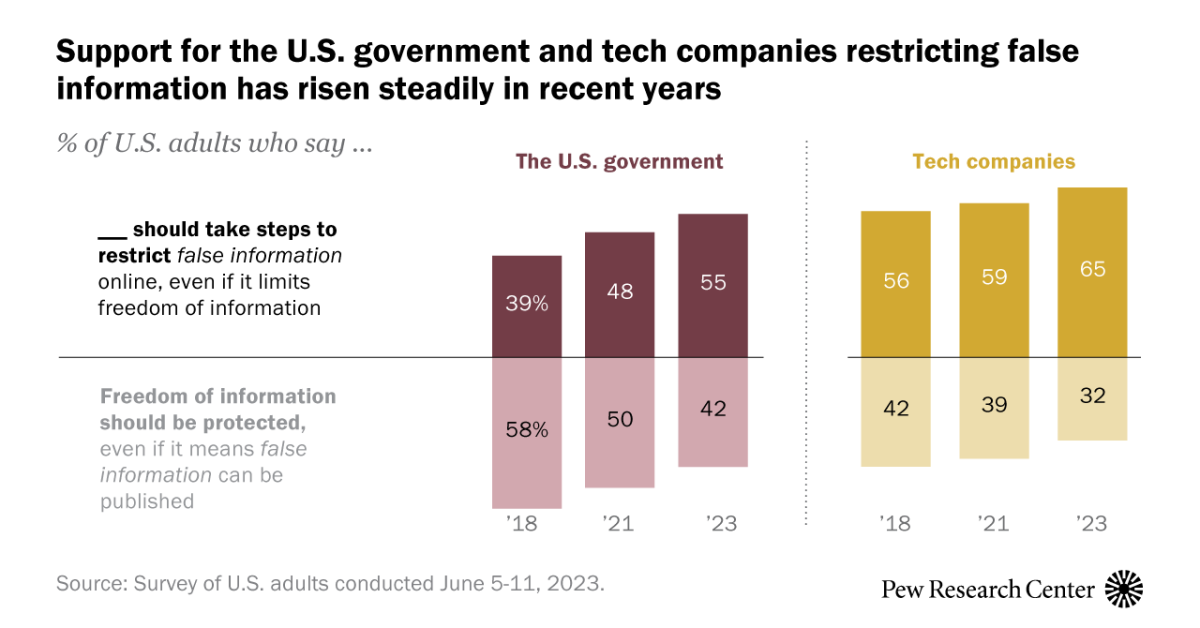65% of Americans support tech companies moderating false information online and 55% support the U.S. government taking these steps. These shares have increased since 2018. Americans are even more supportive of tech companies (71%) and the U.S. government (60%) restricting extremely violent content online.



First off, 50% of the country believes things that actually have no evidence other than people they like saying it. It’s not about different truths, it’s about truth and fiction. All you need to do is try and verify claims from first or second hand sources, and that becomes painfully obvious, but people refuse to accept that or be open to it.
Second, nobody is asking to have a partisan arbiter of truth. The supreme court was once non partisan, and they’re an arbiter of justice. Even conservatives who are actually capable of researching and following truths come to the same conclusions as the left when it comes to facts. Here’s an easy one: Conservatives all over the country claim there was evidence of election fraud. Okay, it’s been years, where is the evidence? No where, they didn’t even fabricate evidence, they literally didn’t submit anything. Any rational person, regardless of their political views, would agree that there is no reason to believe the election was stolen. Trump is going to trial for espionage. Where is the evidence? You can literally listen to some of it on the internet, there are photos, a large investigation with multiple people on both sides of the aisle took place, there were raids and testimony. But there are still people claiming it’s a witch hunt and there’s no evidence.
It’s not even censorship if they just mark things as not true. There’s really no reason doing something about it has to be equivalent to full scale authoritarian censorship, so you’re walling yourself off from actual solutions with a slippery slope argument that leaves us in the hands of disinformation campaigns, which are easily paid for by rich people and foreign governments.
The supreme court was non partisan. Do you expect the truth arbitration department to go any better?
The 50% of people who believe false things are going to vote for truth arbiters that we don’t like. Surely it will be amazing when the correct party is in control, but inevitably the wrong party will be in control sometimes too.
The issue is that bad truth arbitration is “sticky”. Once a bad actor is in control, they have the power to silence their own opposition.
In order for this to work, we must either make sure a bad actor never ends up at the wheel - which will eventually fail, or neuter the truth arbitration process to the point of inefficacy.
The risks here are probable and tangible. We may have the techniques to do it eventually, but I don’t think we have them right now.
Thing is, the risks of doing nothing have definite consequences that we’ve already been watching. Should we do nothing and let democracy burn in fear that doing something will be abused in the future?
…no? the Supreme Court has always been a politically partisan entity. it quite literally has its most basic power (judicial review) because it usurped that power for itself as part of the political dispute at the heart of Marbury v. Madison. there is fairly compelling evidence that Chief Justice Marshall was seeking a means to enshrine judicial review into law irrespective of its constitutional validity and was not really deciding the case on merits. if the body was ever “non-partisan” then the word is meaningless.